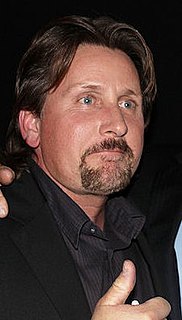A Quote by Charlton Heston
We don't think well of our presidents when they are serving. Even Kennedy, with such a short presidency, was beginning to lose his remarkable appeal to the American people when he was suddenly sainted by death.
Related Quotes
Even though Lyndon Johnson's presidency was in many ways scarred forever by the war in Vietnam, and destroyed in a lot of ways, he - as a character - was even larger than his presidency. Being able to get to know him well, that firsthand relationship with this large character, I think is what drew me to writing books about presidents.
Public image is extremely important in American society and I observed personally that the Presidency of John F. Kennedy did much in the public mind for Harvard. Harvard was an excellent school before Kennedy, but Kennedy embodied a new vision for the United States: a leader who caught the world's imagination and that reflected on his alma mater, Harvard.
At the beginning of his administration, Reagan tried set the basis for American military intervention in El Salvador - which is about what Kennedy did when he came into office in regard to Vietnam. Well, when Kennedy tried it in Vietnam, it just worked like a dream. Virtually nobody opposed American bombing of South Vietnam in 1962. It was not an issue. But when Reagan began to talk of involving American forces in El Salvador there was a huge popular uproar. And he had to choose a much more indirect way of supporting the collection of gangsters in power there. He had to back off.
I think this president has so badly abused his power, breached his trust in remarkable ways with our Congress, with the American people, has violated so many of our international treaty obligations, our Constitution, our domestic statutory laws, and has been responsible for ordering and condoning heinous human rights violations. We need to draw the line.
You know, I am not a particular Kennedy apologist or an awed fan - I was 12 when he was murdered - but I have discussed Kennedy with historians. For his incredibly short tenure, he was a very important president. Many put him in the second tier, below the big three and surrounded by Truman and Eisenhower. Kennedy moved our soul. Changed our thinking about service and governance. And won big in the greatest nuclear crisis of the Cold War.
Absolutely. I think, I think the American people, at their core, are a decent people. I think that we still have prejudice in our midst, but I think that the vast majority of Americans are willing, are willing to judge people on the basis of their ideas and their character. And in the case of the presidency, I think what's most important is whether the American people think that you understand their hopes and dreams and struggles and whether they think you can actually help them achieve those hopes and dreams.
The evidence of our divided racial self was all over the Obama presidency from the beginning: from the shouts of 'you lie' from the well of Congress as he spoke to a joint session, to the unprecedented spectacle of American conservatives rooting against their own country being awarded the Olympic Games.
I believe history will come to view 9/11 as an event on par with November 22, 1963, the date on which John F. Kennedy was murdered, cutting short a presidency that was growing ever more promising. Dreams died that day in Dallas; it is easy to imagine the 1960s turning out rather differently had President Kennedy lived.
Who is there today who still cares about a well-finished death? No one. Even the rich, who could after all afford this luxury, are beginning to grow lazy and indifferent; the desire to have a death of one's own is becoming more and more rare. In a short time it will be as rare as a life of one's own.
When the death of President Franklin Delano Roosevelt thrust him suddenly into the Presidency in April of 1945 at one of the most critical moments of our history, he met that moment with courage and vision. His farsighted leadership in the postwar era has helped ever since to preserve peace and freedom in the world.
It's been written that the most sublime figure in American history was George Washington on his knees in the snow at Valley Forge. He personified a people who knew that it was not enough to depend on their own courage and goodness, that they must also seek help from God - their Father and preserver. Where did we begin to lose sight of that noble beginning, of our conviction that standards of right and wrong do exist and must be lived up to? Do we really think that we can have it both ways, that God will protect us in a time of crisis even as we turn away from him in our day-to-day life?




































